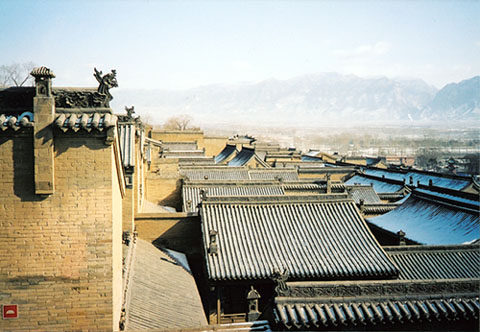Famous Grand Courtyards of Shanxi Merchants(I)
Updated: 2012-03-01

In the Jinzhong plain of North China'sShanxi Province, there are scattered many courtyards: the Qiao Family Grand Courtyard (Qiaojia Dayuan); the Wang Family Grand Courtyard (Wangjia Dayuan); the Qu Family Grand Courtyard (Qujia Dayuan); the Cao Family Grand Courtyard (Caojia Dayuan)…. With the passing of time, each of them has been engraved a signature of vicissitude.
During the Ming and Qing dynasties (1368-1911), merchants of Shanxi (jin shang for short) left their homes to seek opportunities outside their home province. Their footprints reached China's northwestern and Inner Mongolian areas, and even Russian, Japanese, and Southeast Asian areas.
Shanxi' merchants made at least ten financial innovations in theQing Dynasty(1644-1911) and their contributions in the world's finance history is not inferior to the Lombardy bank that was created by the merchants of the Italian Lombardy.
Shanxi' merchants created a strict and scientific management, which pushed them to the peak of their business. Generally, merchants went out to develop their career, but left their family behind in their ancestral home. Thereupon, many luxurious great courtyards were left, which is the best proof of the jin shang's strength.
After experiencing hundreds of hardships, the former jin shang have vanished in the vast historical galaxy, but the buildings they once lived in were left as vestiges in the starry sky.
Today, these mansions have become hot spots, attracting many travelers. Moreover, the deep historical value and cultural relic value as well as scientific value behind them were also excavated gradually.




